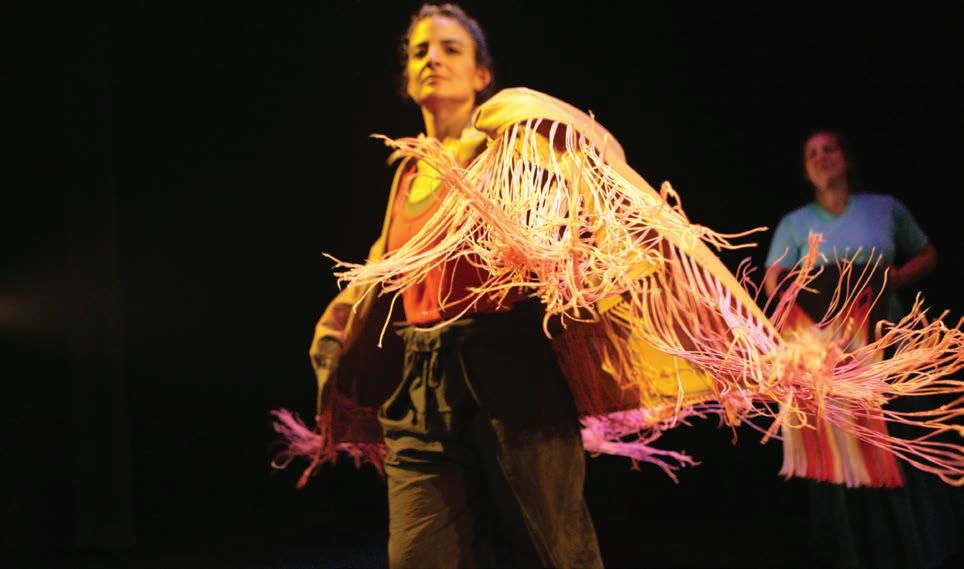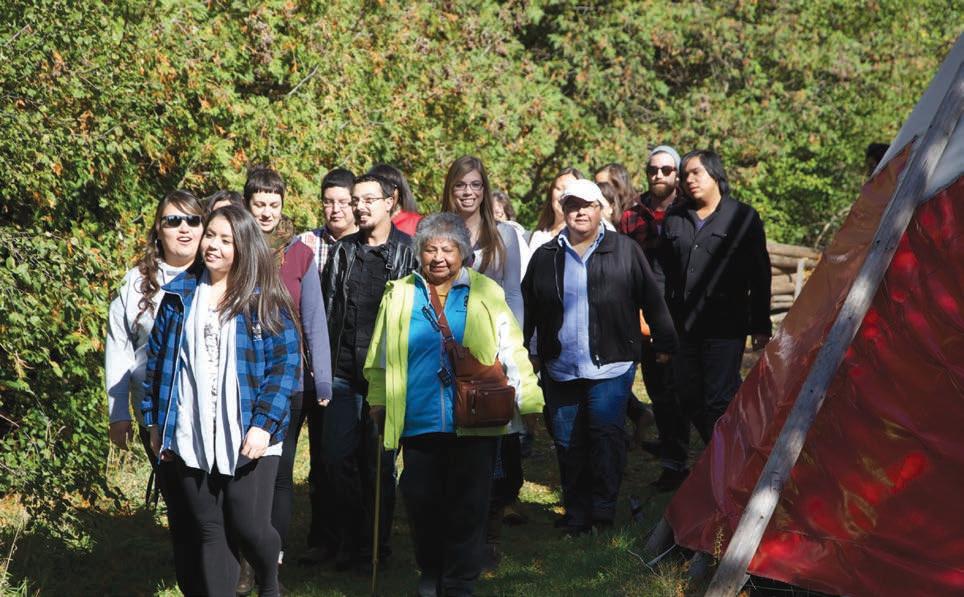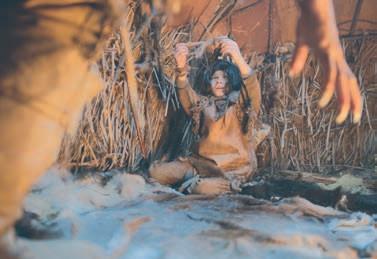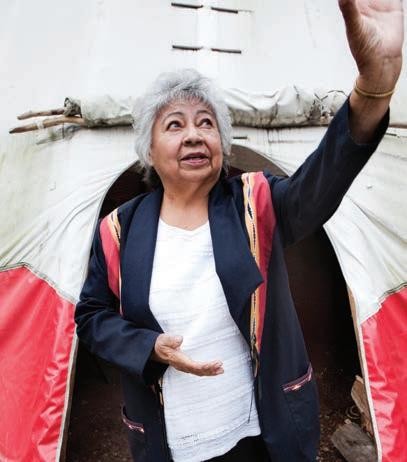
5 minute read
50 Years of Indigenous Studies
A Student’s Perspective
The History of Chanie Wenjack School for Indigenous Studies: 50 YEARS ON A ROAD LESS TRAVELLED
CHEYENNE WOOD (Student, Foundations of Indigenous Learning Program)
“Think Indigenous; Think Trent.” One of The Chanie Wenjack School’s slogans, it speaks to Trent’s role in post-secondary Indigenous education. Trent has gained national status for being Canada’s first and pre-eminent university for Indigenous students and studies. In 1969, Trent University became the first university in Canada, and only the second in North America, to establish an academic department dedicated to the study of Aboriginal peoples. It remains a standard-bearer.
This year Trent celebrates the 50th anniversary of the School of Indigenous Studies. And in this 50th year, it has implemented the Indigenous Course Requirement (ICR) to all incoming students, meaning that it will impact students right across the University. But, like Rome, the Chanie Wenjack School wasn’t built in a day. Years of work, research, and altering of the curriculum went into creating the School as we know it.
In one account of how the Indigenous Studies Program came to be, Professor THB Symons, the founding president of Trent, brought Anishinaabe student Harvey McCue ’66 to his office for a meeting. McCue recalls the meeting in Symons’s biography, Tom Symons: A Canadian Life. In 1967, McCue explained that he was one of 88 Indigenous students enrolled in university across Canada. He recalls being notified that Prof. Symons wanted to meet him over tea. At the time, McCue recalls, the only conflict arising on campus was the mandatory wearing of ties to dinner.
Symons told McCue that he held a strong interest in Native people, and he wanted to use his position as president to make that interest into something more tangible. Following this came a question: What could Trent University do for Aboriginal people?
That first meeting led to McCue and Symons implementing the first course, Canadian Indian Studies 10. In the following years, research was pursued and more work was done behind the scenes, and in 1972, the Department of Native Studies was founded. Academics working in the department during its first year included Professors Ken Kidd, Jack Stanford, Charles Torok, Walter Currie, and Harvey McCue.
In another account, it was Professor Ken Kidd who established the department, having approached Professor Symons with the idea.
Originally, the department relied on available anthropologist and ethnologists. This resulted in only half the story being told—the program was missing out on key aspects of Indigeneity, such as politics, economics, and social histories.
The Chanie Wenjack School for Indigenous Studies has done tremendous work changing that and changing the old Canadian perspective of Indigenous peoples and their ways of being. The department has grown from the Indian and Eskimo Studies 10 course teaching 30 students, to Introduction to Indigenous Studies with upwards of 500 enrolled students. Also featured are multiple language courses (including Mohawk and Nishnaabemowin), classes in Indigenous dance and storytelling, and on Indigenous women and their importance in culture and community. A road once barely visible, the past 50 years have been an uphill struggle—and ultimate success—for those working on the program.
Looking back, Prof. Symons, Prof. Kidd and Mr. McCue all had something in common: they fought for Indigenous education at a time when “Indians and Eskimos” were considered a burden. And while there still are some Canadians who choose to ignore the Indigenous population, education is changing our society and how we view Indigenous peoples. Perhaps in the next 50 years, Trent’s effort to validate Indigenous knowledge in academia will no longer be a rarity, as the idea of Indigenous departments in colonial institutions once were.
Trent took the path less travelled. And what a difference it has made.
Chi Miigwetch and Niaawen to 50 years of greatness, of Indigeneity. Here’s to the next 50 at the exemplary Trent University.

DOUBLE LAUNCH EVENT HERALDS NEW INDIGENOUS WORKS
Shirley Williams’ ’79 autobiographical book and Sacha Trudeau’s new short film celebrated at Wenjack Theatre gathering
On a night when unity between people and with nature was celebrated, a simple but impactful collaboration between two drew all the attention.
Wiisgaapte (Bitter Smoke), a short film written and directed by Alexandre (Sacha) Trudeau, was premiered at Trent’s Wenjack Theatre on March 22 in conjunction with a book written by Chanie Wenjack School for Indigenous Studies professor emerita and Indigenous elder Shirley Williams called Shoolee: The Early Years. Mr. Trudeau’s film has at its centre the Anishnaabe legend of Windigo, a monster born out of winter starvation who craves human flesh. Ms. Williams worked side-by-side with Mr. Trudeau during its production, ensuring the actors were pronouncing the Anishnaabemowin words correctly as well as providing invaluable contextual reference.
“I think it was a Mohawk friend of mine who said, ‘If you’re going to do something bold, make sure you have a strong grandmother behind you,’” said Mr. Trudeau in reference to Ms. Williams’ invaluable support of, and contribution to, his inaugural fictional film project.
“Shirley and I share a lot in common. We’re both kind of shy people yet we are also strong. I admire her time travelling and her ability to remember all of this. This is not my film. It belongs to a whole family of people who put themselves deeply into it. I hope I can keep telling these stories; going into the Canadian past and looking for who we used to be. I need more time travelling in my life.”
Along with the film’s screening, Ms. Williams also paraphrased a chapter from her book, the first of a planned trilogy written in both English and Anishnaabemowin. It recounts her childhood years in Wikwemikong First Nation on Manitoulin Island, and how she learned from her elders about the land, plants, water and animals before being taken away and sent to a residential school.
The double launch event was presented as part of this year’s 50th anniversary celebration of Trent’s Indigenous Studies program.













